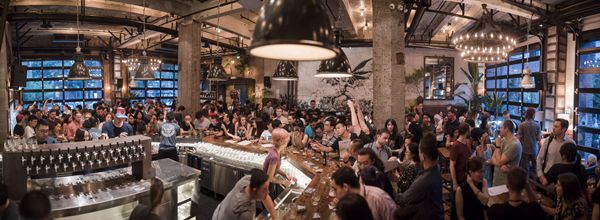Artisanal brews hopping in popularity


Consumer preferences
The main drivers behind this growth, Aamodt points out, is the increasing amount of disposable income the middle classes have and a growing sense of adventure among millennials when it comes to beer.
Others have highlighted this as well. Mark Tanner, the managing director of Shanghai-based marketing and research agency China Skinny, says that Chinese consumers today are highly sophisticated and are more concerned about freshness than origin, something that is music to the ears of craft beer makers.
According to a 2018 report by the EU SME Centre, "the volume of the total beer market has been decreasing, mainly due to the decrease in production and consumption of the Chinese mass-consumed beer segment. However, the value of the total beer market is showing year-on-year growth during the same period, driven by the market's move toward premium products."
Craft beer is generally considered to be superior to commercial beer because higher quality ingredients are used in the manufacturing process.
Research firm McKinsey has also found that a growing number of Chinese consumers are more inclined to support local brands. One of those that have benefited from the pro-local beer sentiment is Dream Brewing. According to its founder Shen Kai, sales of Dream Brewing's beer have been growing by 100 percent year-on-year since it was set up in 2015.
"We started out selling only draft kegs but since July 2017 we have been selling bottled beer as well. We sold about 10,000 bottles of beer in 2017. This year, we expect to sell more than a million bottles," says Shen.
Another local player that has ridden the wave of craft beer popularity is Boxing Cat Brewing, one of the first microbreweries in Shanghai.
Founded in 2008, the microbrewery has won several awards for its beers over the years. It was also the first brewery from the Chinese mainland to win a medal at the 2016 World Beer Cup. There are currently two Boxing Cat outlets in Shanghai and one in Beijing.




































